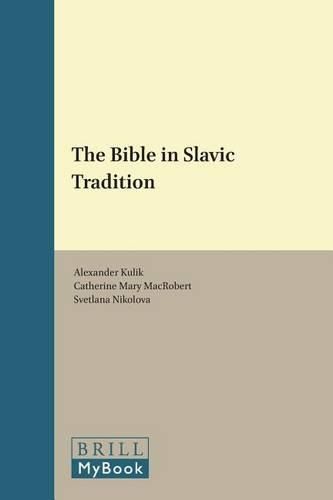Readings Newsletter
Become a Readings Member to make your shopping experience even easier.
Sign in or sign up for free!
You’re not far away from qualifying for FREE standard shipping within Australia
You’ve qualified for FREE standard shipping within Australia
The cart is loading…






This volume contains selected papers from an international conference held in 2009 in Varna, Bulgaria. The papers represent major trends and developments in current research on the medieval Slavonic biblical tradition, primarily in comparison with Greek and Hebrew texts. The volume covers the translation of the canonical, apocryphal and pseudepigraphical books of the Old and New Testaments and its development over the ninth to sixteenth centuries. Another focus is on issues relating to Cyril and Methodius, the creators of the first Slavonic alphabet in the ninth century and the first translators of biblical books into Slavonic. The analytical approach in the volume is interdisciplinary, applying methodologies from textual criticism, philology, cultural and political history, and theology. It should be of value to Slavists, Hebraists and Byzantinists.
$9.00 standard shipping within Australia
FREE standard shipping within Australia for orders over $100.00
Express & International shipping calculated at checkout
This volume contains selected papers from an international conference held in 2009 in Varna, Bulgaria. The papers represent major trends and developments in current research on the medieval Slavonic biblical tradition, primarily in comparison with Greek and Hebrew texts. The volume covers the translation of the canonical, apocryphal and pseudepigraphical books of the Old and New Testaments and its development over the ninth to sixteenth centuries. Another focus is on issues relating to Cyril and Methodius, the creators of the first Slavonic alphabet in the ninth century and the first translators of biblical books into Slavonic. The analytical approach in the volume is interdisciplinary, applying methodologies from textual criticism, philology, cultural and political history, and theology. It should be of value to Slavists, Hebraists and Byzantinists.